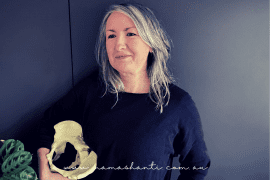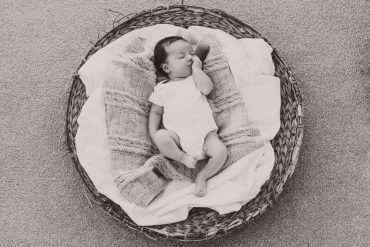Triggers From The Past
At times, clues to a mother’s PND might be hidden in her own childhood history. Some mothers who felt emotionally deprived in their early years find the demands of a baby particularly nerve-racking; and this places them at risk of PND.
A new baby powerfully evokes from our unconscious memory a plethora of feelings, both positive and negative, that we felt when we ourselves were infants. Though a mother may not suspect it, her baby’s cries could be triggering her own painful memories of infancy. If a mother has unresolved pain about some loss or abandonment, this pain may re-emerge when she enters motherhood – though she may have no idea why she is crying. Women who had difficulties with attachment to their own mothers, who feel their mothers were not caring enough, or that their fathers were overprotective; are more likely to suffer from PND.
A new baby powerfully evokes from our unconscious memory a plethora of feelings, both positive and negative, that we felt when we ourselves were infants. Though a mother may not suspect it, her baby’s cries could be triggering her own painful memories of infancy.
If our own childhood emotional needs weren’t met, we might find our children’s dependency hard to tolerate. It is hard to give what has not been given us, and our babies’ cries assail our ears – unbearably. Researchers have found that women who are more bothered by the sound of a baby crying are more likely to develop PND once their own baby arrives.
A group of American psychologists who were working with mothers that were having trouble bonding with their babies, invited them to talk about their own childhoods. They helped these mothers to connect with their own childhood pain, and to weep. Immediately after this emotional release, these mothers spontaneously cuddled their babies. Their nurturing energies had been walled up behind a layer of frozen, unexpressed grief. For many PND sufferers, unresolved grief is the key.
So, an ongoing emotionally supportive and empathic relationship with her own mother can be a most potent vaccine against PND. If this is not possible, then it can be helpful – indeed, necessary – for a woman to talk openly and grieve her past, in the presence of trusted others.
Is it Depression – or Reaction to Trauma?
For some mothers, PND may be a mistaken diagnosis: they might in fact be suffering from Post-Traumatic Stress Disorder (PTSD). For many women, the experience of labour can be highly traumatic. Around 20% of mothers lose at least some memory of the labour experience: they report being in a ‘fog’. This partial amnesia is a kind of dissociation, and a classic symptom of PTSD. British psychologists have found that 2% to 5% of mothers get full-blown PTSD after a difficult childbirth. A much larger proportion suffer symptoms of PTSD, such as nightmares, intrusive thoughts, problems with breastfeeding, feelings of failure, feelings of estrangement and difficulty bonding to their baby.
The cold, clinical atmosphere of labour wards and the intrusiveness of defensive obstetrics are, for many women, thoroughly violating. More than any other time, childbirth is a scary passage when mothers need a profound and ongoing empathic connection, they need their fears validated. Mothers usually feel extremely vulnerable at this time, and modern obstetric wards place little emphasis on their psychological needs. Many women feel that their control is taken away from them, that procedures are carried out without their understanding or consent, and that their fears are dismissed by hospital staff. Moreover, in hospitals that separate new mothers from their infants, their powerful, instinctual need to remain close is brushed aside. Many mothers feel devastated by this separation; they feel strangely empty or bereft, perhaps without knowing why.
More than any other time, childbirth is a scary passage when mothers need a profound and ongoing empathic connection, they need their fears validated.
In my private practice, over the years, I have heard so many mothers complain bitterly that when they express such feelings to hospital staff, they feel dismissed, told they are being ‘irrational’. Some hospital staff trivialise and minimise mothers’ emotional ups and downs through this delicate process, their terror, their pain, and their feelings of helplessness, as if the only thing that matters is that mother and child have survived the process physically unscathed. Depression begins when women’s attempts to voice their feelings are met with the message: “You have nothing to complain about.” This is completely crushing. We close our eyes to these traumas and their consequences at a grave cost to mothers, their babies and their partners.
Jean Robinson, research officer at UK Association for Improvements in the Maternity Services says that the incidence of PTSD among new mothers has risen along with an increase in interventions such as induced labour and caesarian section. But even after normal births, symptoms of PTSD can arise when mothers are made to feel helpless, dis-empowered and their right to make birthing decisions is taken away from them.
Read more on Page 3…










